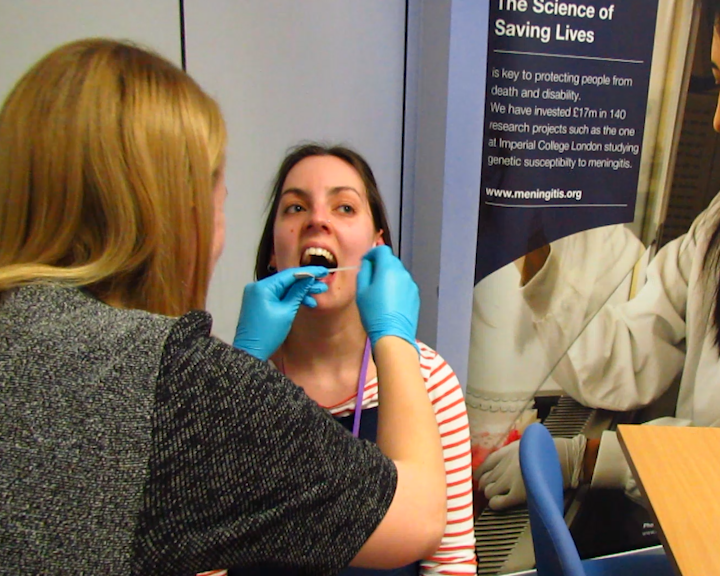Meningitis is dangerous and uniquely fast acting, and has been consistently named by parents as the disease they fear the most. It is one of the only diseases in modern Britain that can kill within 24 hours of onset.
Although meningitis mostly occurs in babies and young children, the bacteria that cause it are most commonly found living in the throats of teenagers and young adults. They are transmitted between these young people, and to others, through social contact.
In order to minimise the spread of meningitis, effective disease control is key. This can be achieved by breaking the chain of transmission to ensure the bacteria isn’t passed from one person to another. An example of this can be seen in the 1990s, when a vaccination programme was introduced to combat a common form of meningitis at the time, MenC. The success of the vaccination programme was largely due to the vaccine’s ability to reduce the carriage and transmission of the bacteria amongst teenagers. Consequently, MenC has now been all but eradicated in the UK.
However, there is still a long way to go. Meningitis develops and diversifies over time. We see new strains developing, and different types of meningitis developing to fill the gap left by strains which have been controlled by vaccination. In 2015, a new vaccination programme was introduced against MenB, which had grown to become the most prevalent strain of the disease in the UK. At present this vaccine is only available to babies under 1 year of age as the most at risk group. However, people of any age can catch MenB, and in recent months we have seen a number of very sad cases of deaths from MenB in teenagers. Researchers believe that the key to protecting the whole population will be to control carriage, and in order to do this it is essential that we understand how meningococcal bacteria are carried by teenagers.
The Pixel Fund is helping us to support a research project which hopes to answer this question. Dr Adam Finn and his team at the University of Bristol are seeking to fill a significant knowledge gap in this area by examining samples previously taken from teenagers, using an innovative and less invasive new sample collection technique. The study will provide further insight into the efficacy of the new sample collection technique, the levels of meningococcal bacteria present in the samples and what effect the MenB vaccine has on the carriage and transmission of the bacteria. This will inform a larger nationwide study funded by the Department of Health due to begin in 2018.
With the Pixel Fund’s support, the study will also provide crucial evidence on how best to achieve “herd immunity” through vaccination, a phenomenon where the protection of many can be achieved by the vaccination of a few key groups. If the study can show conclusively that the MenB vaccine reduces carriage amongst teenagers, it could completely change the way we use the vaccine in the future, with immunisation strategy becoming more effective and focusing on attaining herd immunity and reducing transmission.
This could ensure the sustainability of the MenB vaccine by making sure that it is as efficient and cost-effective as it can be, potentially saving lives and preventing families from having to go through the devastating experience of meningitis.
On behalf of Meningitis Research Foundation




